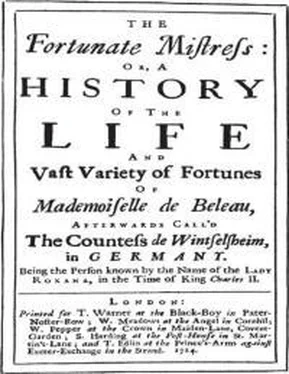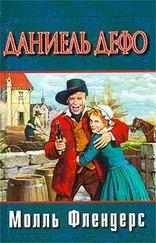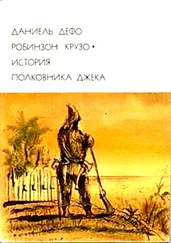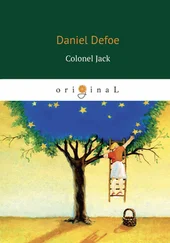I may venture to say, that no Woman ever liv’d a Life like me, of six and twenty Years of Wickedness, without the least Signals of Remorse; without any Signs of Repentance; or without so much as a Wish to put an End to it; I had so long habituated myself to a Life of Vice, that really it appear’d to be no Vice to me; I went on smooth and pleasant; I wallow’d in Wealth, and it flow’d in upon me at such a Rate, having taken the frugal Measures that the good Knight directed; so that I had at the End of the eight Years, two Thousand eight Hundred Pounds coming Yearly in, of which I did not spend one Penny, being maintain’d by my Allowance from my Lord —, and more than maintain’d, by above 200 l . per Annum ; for tho’ he did not contract for 500 l . a Year, as I made dumb Signs to have it be, yet he gave me Money so often, and that in such large Parcels, that I had seldom so little as seven to eight Hundred Pounds a Year of him, one Year with another.
I must go back here, after telling openly the wicked things I did, to mention something, which however, had the Face of doing good; I remember’d, that when I went from England , which was fifteen Years before, I had left five little Children, turn’d out, as it were, to the wide World, and to the Charity of their Father’s Relations; the Eldest was not six Years old, for we had not been marry’d full seven Years when their Father went away.
After my coming to England , I was greatly desirous to hear how things stood with them; and whether they were all alive or not; and in what Manner they had been maintain’d; and yet I resolv’d not to discover myself to them, in the least; or to let any of the People that had the breeding of them up, know that there was such a-body left in the World, as their Mother.
Amy was the only-body I cou’d trust with such a Commission, and I sent her into Spittle-Fields , to the old Aunt, and to the poor Woman, that were so instrumental in disposing the Relations to take some Care of the Children, but they were both gone, dead and buried some Years; the next Enquiry she made, was at the House where she carry’d the poor Children, and turn’d them in at the Door; when she came there, she found the House inhabited by other People, so that she cou’d make little or nothing of her Enquiries, and came back with an Answer, that indeed, was no Answer to me, for it gave me no Satisfaction at-all: I sent her back to enquire in the Neighbourhood, what was become of the Family that liv’d in that House? and if they were remov’d, where they liv’d? and what Circumstances they were in? and withal, if she cou’d, what became of the poor Children, and how they liv’d, and where? how they had been treated? and the like .
She brought me back word, upon this second going, that she heard as to the Family, that the Husband, who tho’ but Uncle-in-Law to the Children, had yet been kindest to them, was dead; and that the Widow was left but in mean Circumstances, that is to say, she did not want, but that she was not so well in the World as she was thought to be when her Husband was alive.
That as to the poor Children, two of them it seems, had been kept by her, that is to say, by her Husband, while he liv’d, for that it was against her Will, that we all knew; but the honest Neighbours pity’d the poor Children, they said , heartily; for that their Aunt us’d them barbarously, and made them little better than Servants in the House, to wait upon her and her Children, and scarce allow’d them Cloaths fit to wear.
These were, it seems my Eldest, and Third, which were Daughters; the Second was a Son; the Fourth a Daughter; and the Youngest a Son.
To finish the melancholly Part of this History of my two unhappy Girls, she brought me word, that as soon as they were able to go out, and get any Work, they went from her; and some said, she had turn’d them out of Doors; but it seems she had not done so, but she us’d them so cruelly that they left her; and one of them went to Service to a Neighbour’s a little-way off, who knew her, an honest substantial Weaver’s Wife, to whom she was Chamber-Maid, and in a little time she took her Sister out of the Bridewell of her Aunt’s House, and got her a Place too.
This was all melancholly and dull; I sent her then to the Weaver’s House, where the Eldest had liv’d, but found that her Mistress being dead, she was gone, and no-body knew there, whither she went; only that they heard she had liv’d with a great Lady at the other-end of the Town; but they did not know who that Lady was.
These Enquiries took us up three or four Weeks, and I was not one Jot the better for it, for I cou’d hear nothing to my Satisfaction; I sent her next to find out the honest Man, who, as in the Beginning of my Story I observ’d made them be entertain’d, and caus’d the Youngest to be fetch’d from the Town where we liv’d, and where the Parish-Officers had taken Care of him: This Gentleman was still alive; and there she heard that my youngest Daughter and eldest Son was dead also; but that my youngest Son was alive, and was at that time, about 17 Years old; and that he was put out Apprentice, by the Kindness and Charity of his Uncle, but to a mean Trade, and at which he was oblig’d to work very hard.
Amy was so curious in this Part, that she went immediately to see him, and found him all-dirty, and hard at-work; she had no remembrance at-all of the Youth, for she had not seen him since he was about two Years old; and it was evident he cou’d have no Knowledge of her.
However, she talk’d with him, and found him a good sensible mannerly Youth; that he knew little of the Story of his Father or Mother, and had no View of any-thing, but to work hard for his Living; and she did not think fit to put any great things into his Head, lest it shou’d take him off of his Business, and perhaps, make him turn giddy-headed, and be good for nothing; but she went and found out that Kind Man, his Benefactor, who had put him out; and finding him a plain well-meaning, honest, and kind-hearted Man, she open’d her Tale to him the easier: She made a long Story, how she had a prodigious Kindness for the Child, because she had the same for his Father and Mother; told him, that she was the Servant-Maid that brought all of them to their Aunt’s Door, and run away and left them; that their poor Mother wanted Bread; and what came of her after, she wou’d have been glad to know; she added, that her Circumstances had happen’d to mend in the World; and that, as she was in Condition, so she was dispos’d to shew some Kindness to the Children, if she cou’d find them out.
He receiv’d her with all the Civility that so kind a Proposal demanded; gave her an Account what he had done for the Child; how he had maintain’d him, fed and cloath’d him; put him to School, and at last, put him out to a Trade; she said , he had indeed, been a Father to the Child; but Sir, says she , ’tis a very laborious hard-working Trade, and he is but a thin weak Boy; that’s true, says he , but the Boy chose the Trade, and I assure you, I gave 20 l . with him, and am to find him Cloaths all his Apprenticeship; [228] Apprenticeship : From 1562 to 1814 no one was permitted by law to engage in a trade until he had served an apprenticeship of seven years. An apprentice was bound by contract (an indenture) to a master, who undertook to teach him his trade in return for a fixed payment and sometimes other considerations (in this case, clothing). The amount of payment increased with the desirability of the trade.
and as to its being a hard Trade, says he , that’s the Fate of his Circumstances, poor Boy; I cou’d not well do better for him.
Well, Sir, as you did all for him in Charity, says she , it was exceeding well; but as my Resolution is to do something for him, I desire you will, if possible, take him away again, from that Place, where he works so hard, for I cannot bear to see the Child work so very hard for his Bread, and I will do something for him, that shall make him live without such hard Labour.
Читать дальше











